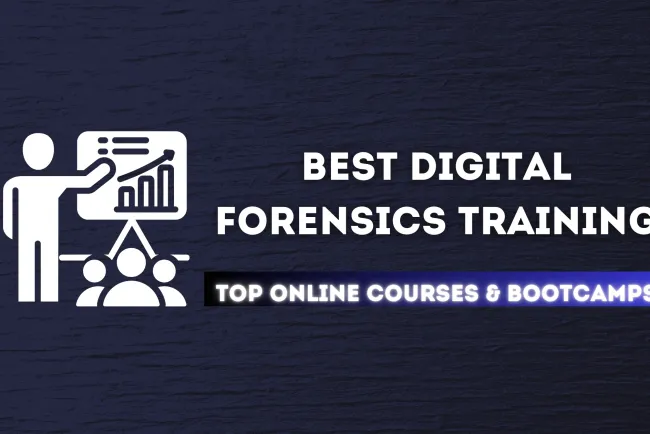Best Diploma in Cloud Computing and Cyber Security Course in 2025 | Eligibility, Syllabus, Fees, Duration, Career Scope & Top Colleges
With the rising demand for cloud-based services and data security, a Diploma in Cloud Computing and Cyber Security has become one of the most sought-after programs in 2025. This course blends the core skills of building scalable cloud infrastructure with the ability to defend it against modern cyber threats. It is designed for students, IT professionals, and career changers looking to secure a future in the tech industry. Covering platforms like AWS, Azure, and Google Cloud along with ethical hacking, network security, and incident response, this diploma ensures holistic knowledge. The blog explores eligibility, course modules, career opportunities, salary scope, certification paths, and top institutes offering this diploma—helping aspirants make an informed decision.

Introduction
As the world embraces digital transformation, Cloud Computing and Cyber Security have emerged as two of the most crucial pillars of the modern IT industry. Organizations are rapidly shifting to cloud platforms to ensure scalability, efficiency, and cost-effectiveness, but this shift also comes with a growing need for robust cyber protection. This is where a Diploma in Cloud Computing and Cyber Security becomes a powerful combination, equipping students with skills that are both highly in-demand and future-proof.
Whether you're a student looking to start a tech career, an IT professional wanting to upskill, or someone aiming to shift to a lucrative industry, this diploma opens doors to several exciting career paths such as Cloud Engineer, Security Analyst, DevSecOps Professional, and IT Infrastructure Manager.
What Is a Diploma in Cloud Computing and Cyber Security?
A Diploma in Cloud Computing and Cyber Security is a specialized program that combines knowledge of cloud platforms like AWS, Microsoft Azure, and Google Cloud, with deep understanding of network security, ethical hacking, data privacy, and incident response. This dual-domain diploma enables learners to not only build, manage, and scale cloud environments but also secure them from modern-day cyber threats.
Course Duration
| Program Type | Duration |
|---|---|
| Regular Diploma | 6 – 12 months |
| Advanced Diploma | 12 – 18 months |
| Fast Track (Online) | 3 – 6 months |
Eligibility Criteria
-
Minimum qualification: 10+2 (any stream)
-
Basic understanding of computers or IT
-
No coding experience required, but preferred
Key Learning Modules
| Module Name | Focus Area |
|---|---|
| Fundamentals of Cloud Computing | Cloud types, deployment models, virtualization |
| Cloud Platforms – AWS, Azure, GCP | Hands-on with popular platforms |
| Cyber Security Essentials | Threats, vulnerabilities, security concepts |
| Network Security & Firewalls | Securing network infrastructure |
| Ethical Hacking | Penetration testing, Kali Linux, Metasploit |
| Security in the Cloud | IAM, encryption, secure configurations |
| Incident Response and Forensics | Detecting and responding to security breaches |
| DevOps and Security (DevSecOps) | Integrating security into cloud development |
| Compliance & Cyber Laws | Data protection laws (like GDPR, IT Act, etc.) |
| Project and Capstone | Real-world simulation or live cloud security project |
Skills You Will Gain
-
Configure and deploy secure cloud infrastructure
-
Detect and mitigate cyber attacks
-
Manage cloud services with a security-first approach
-
Understand regulatory and compliance frameworks
-
Use tools like Wireshark, Nmap, Kali Linux, Splunk, AWS Security Hub
Career Opportunities
| Role | Average Salary (India) |
|---|---|
| Cloud Security Analyst | ₹6 – ₹12 LPA |
| Cybersecurity Specialist | ₹5 – ₹10 LPA |
| Cloud Administrator | ₹4 – ₹9 LPA |
| DevSecOps Engineer | ₹8 – ₹15 LPA |
| Network Security Engineer | ₹5 – ₹11 LPA |
| Information Security Officer | ₹7 – ₹20 LPA |
Top Recruiters
-
Accenture
-
Infosys
-
TCS
-
Capgemini
-
Deloitte
-
Wipro
-
Google Cloud Partners
-
Microsoft Azure Partners
Why Choose a Dual-Domain Diploma?
-
Job Market Demand: Cloud and security are top 5 fastest-growing IT jobs in 2025.
-
Future-Proof Career: Both skills are central to AI, IoT, and digital transformation.
-
Higher Salaries: Dual expertise commands better pay.
-
Flexibility: Work in startups, MNCs, or freelance as a consultant.
Certification Options After the Diploma
-
AWS Certified Solutions Architect
-
Microsoft Certified: Azure Fundamentals
-
CompTIA Security+
-
Certified Ethical Hacker (CEH)
-
Google Associate Cloud Engineer
Who Should Take This Course?
-
Students after 12th or graduation
-
Working professionals in IT or networking
-
Entrepreneurs managing cloud apps or websites
-
Freelancers aiming to secure client infrastructure
Conclusion
A Diploma in Cloud Computing and Cyber Security is more than just a course—it’s a launchpad into one of the most dynamic and rewarding career paths in tech. The integrated curriculum ensures you’re not only building smart cloud systems but also protecting them in real-time. With the increasing dependency on cloud infrastructure across every sector, skilled professionals in cloud and security are not just valued—they’re essential.
FAQs
What is a diploma in cloud computing and cyber security?
It is a combined technical course that teaches students how to build, manage, and secure cloud infrastructure using industry-standard tools and technologies.
Who is eligible for this diploma course?
Anyone who has completed 10+2 (from any stream) with basic computer knowledge is eligible to apply.
Can I do this diploma after 10th?
Some institutes offer foundation programs after 10th, but most require at least a 12th pass or equivalent qualification.
What are the major cloud platforms taught in this course?
The course generally includes training in AWS, Microsoft Azure, and Google Cloud Platform.
Does this diploma include ethical hacking?
Yes, most programs integrate modules on ethical hacking and penetration testing using tools like Kali Linux and Metasploit.
What is the average course fee in India?
Fees can range from ₹30,000 to ₹1,50,000 depending on the institute and duration of the course.
What is the typical duration of the course?
Diploma courses usually last 6 months to 1 year. Fast-track and online versions may be shorter.
Can I do this diploma online?
Yes, several institutes and platforms offer online or hybrid learning modes for flexibility.
What are the key skills I will learn?
You will learn cloud deployment, infrastructure security, firewall setup, vulnerability assessment, IAM, compliance, and more.
Which tools are used in the course?
Tools include Wireshark, Splunk, AWS Security Hub, Nmap, Burp Suite, and Terraform.
What jobs can I apply for after this diploma?
You can apply for roles such as Cloud Administrator, Cyber Security Analyst, DevSecOps Engineer, and Network Security Specialist.
Is coding necessary to take this course?
Basic coding is helpful but not mandatory. Many tools used are GUI-based or require scripting-level knowledge.
Can I pursue higher studies after this diploma?
Yes, you can pursue advanced diplomas, bachelor's degrees in cyber security or cloud computing, or certifications like CEH or AWS Architect.
Are there any certifications included in the diploma?
Many programs offer preparation or vouchers for certifications like AWS, CompTIA Security+, or CEH.
What is the salary after completing the diploma?
Entry-level salaries range between ₹4 – ₹8 LPA, depending on experience and location.
Do companies hire diploma holders?
Yes, many startups, MNCs, and cloud-based companies actively hire diploma holders with practical skills.
Which companies recruit from this domain?
Top recruiters include Accenture, TCS, Infosys, Deloitte, HCL, Wipro, Amazon, and Microsoft partners.
Is this diploma recognized internationally?
If taken from reputed institutes or platforms, the skills and certifications are recognized globally.
Can I freelance with this diploma?
Yes, cloud setup and cyber security audits are in demand for freelance projects and small businesses.
What is cloud security?
Cloud security involves protecting cloud-stored data, services, and infrastructure from unauthorized access or breaches.
Does this course cover DevOps and DevSecOps?
Yes, some advanced diplomas include modules on integrating security in the CI/CD pipeline.
What’s the difference between cloud computing and cyber security?
Cloud computing deals with storage and deployment while cyber security focuses on protection and data integrity.
Is this course suitable for non-IT students?
Absolutely. The course is designed in a beginner-friendly way with hands-on training and real-life examples.
What are the future prospects of this diploma?
Cloud and security jobs are among the fastest-growing in IT, with high demand expected for the next decade.
Can I get a government job with this diploma?
Yes, many government and PSU IT departments recruit cyber security experts and cloud administrators.
What are some trending career paths after this diploma?
Cloud Security Analyst, Cyber Security Consultant, Pen Tester, Cloud DevOps, and Risk Assessor are popular roles.
Which is better – cyber security or cloud computing?
Both have high demand, but combining them in one diploma offers a competitive edge and broader opportunities.
Is there any placement assistance after completing the course?
Top institutes like WebAsha Technologies offer placement support and internship opportunities.
Why choose WebAsha Technologies for this diploma?
WebAsha Technologies is known for industry-focused curriculum, hands-on training, certification guidance, and strong placement support.
Can I shift to cloud security from a different career?
Yes, this diploma is ideal for career changers who want to enter the tech industry with dual expertise.












![Top 10 Ethical Hackers in the World [2025]](https://www.webasha.com/blog/uploads/images/202408/image_100x75_66c2f983c207b.webp)

![[2025] Top 100+ VAPT Interview Questions and Answers](https://www.webasha.com/blog/uploads/images/image_100x75_6512b1e4b64f7.jpg)









